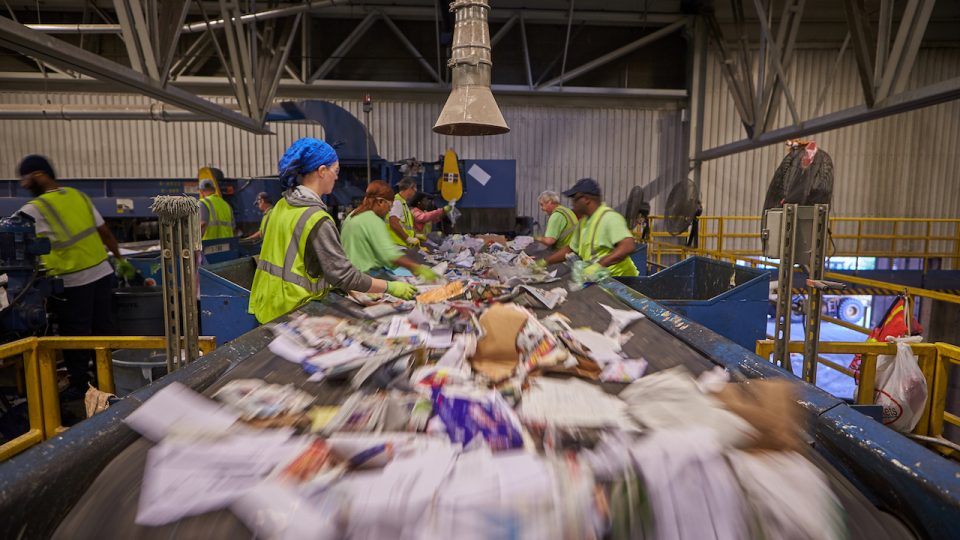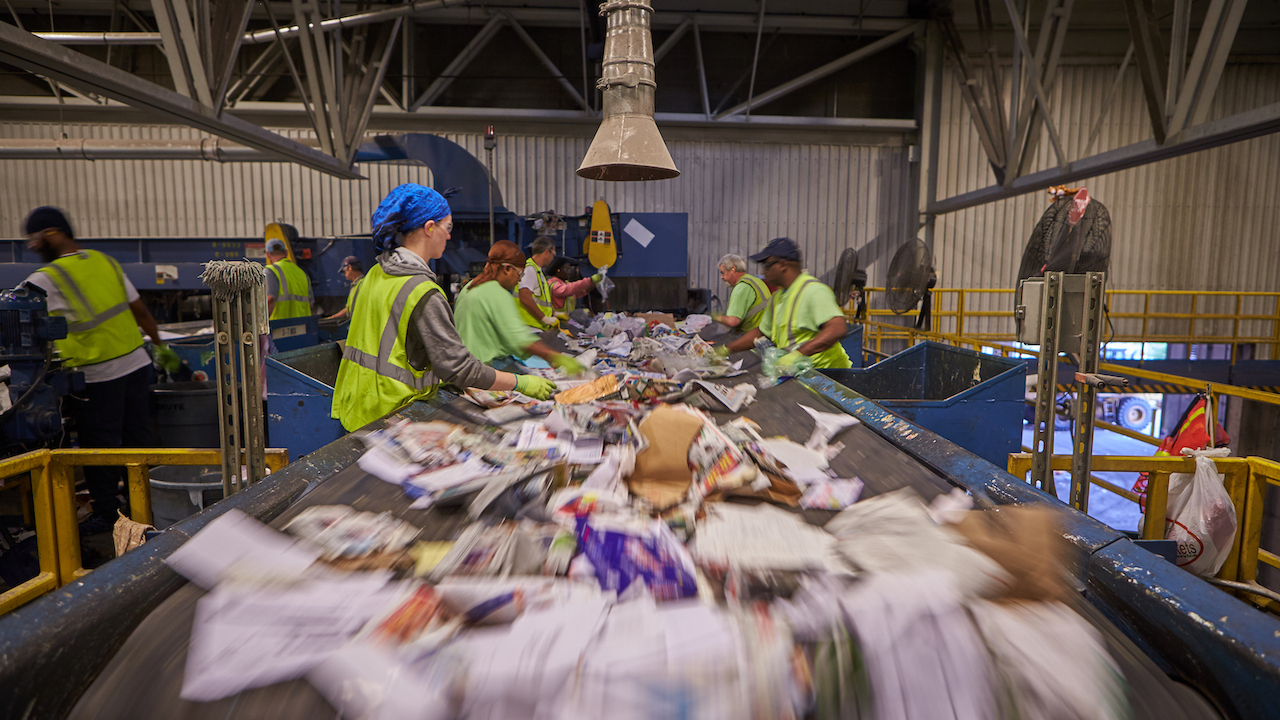Make recycling and reusing — not throwing away — the focus of spring cleaning this year.

This story was originally published on the Detroit Free Press.
As spring draws near, it’s time to ensure everything in your home is in the proper place — including the stuff that you simply want to get rid of.
“Rather than just automatically pitching unwanted items into the trash, we’re urging Michiganders to think in terms of recycling and reusing while they go about cleaning and decluttering their households,” said Elizabeth Garver, waste minimization and recycling specialist for the Michigan Department of Environment, Great Lakes, and Energy, or EGLE.
That sentiment is echoed by other recycling leaders throughout the state who are gearing up for an influx of materials at their sorting facilities.
“We always see a variety of items come in because spring cleaning is so big,” said Katelyn Nettler, resource recovery specialist for the Kent County Department of Public Works, whose Recycling & Education Center serves as the primary materials recovery facility for recyclables generated by West Michigan households.
However, some of what spring cleaners place in their recycling bins doesn’t belong there — at least in its current condition. For example, containers that themselves are recyclable are dangerous if they still contain chemicals, such as bleach or drain cleaner, that can mix and cause fires at recycling facilities, Nettler said.
Garver said that’s one reason why it’s so important to follow the rules that EGLE is promoting in its statewide Know It Before You Throw It recycling education campaign, which aims to increase both the quality and quantity of recycling in Michigan.
“One thing we stress is that you should always rinse and empty all containers before placing them in your recycling bin,” she said. “We also urge people to check with their local recycling service to learn exactly what materials they accept.”
When it comes to spring cleaning, those rules could apply to any number of items. Here’s some guidance on how to handle materials that are commonly encountered during spring cleaning:
— Pieces of metal, such as old grills, rusty lawn mower blades, or pots and pans. “Scrap metal is generally not accepted curbside, but some drop-off recycling centers will take it,” said SOCRRA General Manager Jeff McKeen, who oversees recycling services in 12 Oakland County communities. You also might get some cash for it if you find a scrap yard that wants it, Garver said.
— Hazardous material containers, such as those for cleaners, fertilizers and paint. Many counties and local governments host local collection events every spring and fall where residents can dispose of hazardous waste. EGLE has a webpage devoted to household hazardous waste, including a list of statewide collection sites. “It’s possible that some containers that once held cleaners or other household hazardous materials may be recyclable curbside, as long as they are clean and empty — just be sure to check with your local program first, and ‘know it before you throw it,’” Garver said.
— Batteries. Batteries can pose a threat to employees at recycling facilities, as they are a fire risk. However, hazardous waste collection sites might accept certain types, such as car batteries, which some auto parts stores will also take. In addition, home improvement retailers like Lowe’s and Home Depot accept drop-offs of rechargeable batteries.
— Hoses, boat shrink-wrap and other types of flexible plastics. Recycling facilities don’t want these materials because they can get tangled in their machinery, but they’re ripe for reuse, Nettler said. “You could poke holes in a hose and use it as a lawn soaker, or use the shrink-wrap as a painting dropcloth,” she suggested. In addition, the fledgling Recycling Run Program will pick up used shrink-wrap by appointment and find a new use for it.
— Plastic flowerpots and plant containers. Some recycling services will accept these materials curbside, provided they’re not full of dirt, McKeen said. You could also possibly reuse them or see if the retailer where you bought them will take them back. Home Depot stores and Meijer garden centers also collect them for recycling in partnership with East Jordan Plastics.
— Plastic lawn chairs. “You can always donate these if they’re in good condition, and they can sometimes be recycled at drop-off locations,” Garver said.
— Electronic-waste, such as old computers or TVs. Look for local drop-off centers or one-day collection events. Some electronics retailers will also take e-waste turned in by consumers. In addition, some manufacturers provide a takeback option for electronics like televisions and computers.
— Clothing. “This is a big no-no for curbside recycling,” Nettler said. However, local thrift shops can find new uses for most donated garments. You could also turn them into rags to use for cleaning in place of paper towels. Simple Recycling, a for-profit, Ohio-based company, provides curbside textile collections in 30 Michigan communities.
— Mattresses. There may be local drop-off centers or one-day collection events for mattress disposal, Garver said. If you have curbside waste services, check with your service provider or local municipality regarding options for bulky waste pickup.
— Supplies from the first cookout of the year after your spring cleanup is finished: paper plates, plastic plates and cups, straws, plastic utensils, etc. Most of this should go in the trash, which is why it’s best to choose reusable options, Nettler said. Exceptions are clean aluminum foil and plastic cups, which are often recyclable curbside, though foam containers are rarely accepted, McKeen said.

